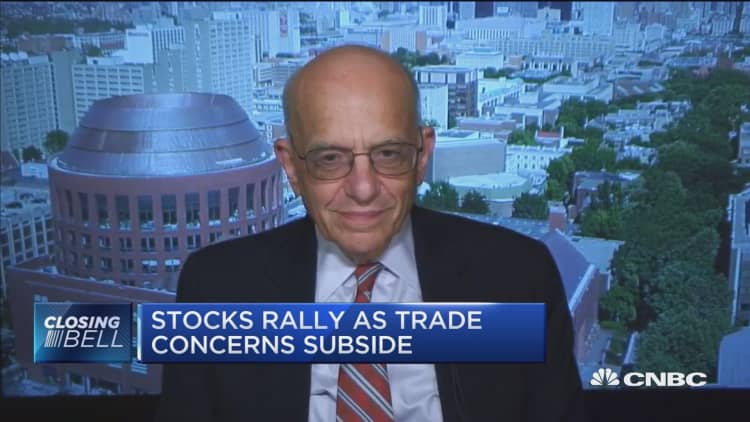
Wharton School finance professor Jeremy Siegel sees hope for the stock market in the latest jobs report, which he calls a “blockbuster."
Siegel, a longtime bull who has recently turned cautious, told CNBC that Friday’s report had the “best possible outcome” — strong job growth, a rise in the participation rate and less pressure on unemployment.
That gives him hope the Federal Reserve may slow the pace of interest rate hikes, which he sees as the most important factor facing the stock market.
“It really means there’s a chance the Fed is not going to raise four times this year and we’re not going to squeeze on labor supply,” he said Monday on “Closing Bell."
That said, he’d like to see another month of data to convince him the central bank may only implement three rate increases, instead of the four he has been predicting.
“I’m still very, very cautious, but I was encouraged by Friday,” he added.
The United States added 213,000 jobs in June, better than the 195,000 expected by economists. The unemployment rate rose to 4 percent, due to the rise in the labor force participation rate. According to the government report, 601,000 people came off the sidelines and re-entered the work force.
“We need those people that have not been involved in the labor force to come in and take that pressure off. We can grow quickly then without the Fed raising rates too much,” Siegel said.
A trade war is another factor for stocks, but the market sees only a 10 percent probability of that happening, he added.
“If it heats up, wow. That’s a lot of downside.”
President Donald Trump’s tariffs on $34 billion worth of Chinese goods took effect on Friday. China then fired back with retaliatory tariffs on $34 billion worth of U.S. goods, including soybeans and pork.
Trump also expects to soon add a further $16 billion in tariffs and will consider up to hundreds of billions of dollars more in duties.
Meanwhile, the U.S. has also placed duties on steel and aluminium from Canada, Mexico and the European Union, key allies. They have responded with retaliatory measures.
While it’s tough to predict what Trump will ultimately do, Siegel said he thinks the president will stop short of making it a real problem for the world economy.
“No president has had more tweets about enjoying a good stock market than Donald Trump. Well, if he wants to continue to enjoy a good stock market he cannot bring this trade war upon us all,” he said.
— CNBC's Jeff Cox contributed to this report.


